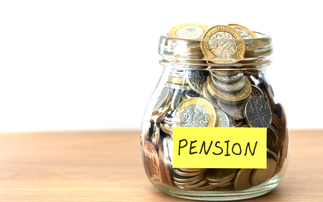Chancellor Philip Hammond has restricted the tax-free benefits offered by salary sacrifice schemes - a move that is set to save the government more than £1bn by 2022.
The chancellor said the restrictions to the salary sacrifice regime would take effect from April 2017 - a move HM Treasury said would mean "most salary sacrifice schemes will be subject to the same tax as cash income".
Although Hammond did not specify exactly what benefits would be included in the move, he said pensions, childcare vouchers, cycle to work schemes and ultra-low emission cars (those with CO2 emissions of up to 75g/km) would be exempted from these changes.
In addition, he said that certain long-term arrangements - such as arrangements for cars, accommodation and school fees - would be protected until April 2021.
See: Salary sacrifice restrictions - The list of affected and exempt benefits
Hammond said: "The government will take action to reduce the difference between the treatment of cash earnings and benefits.
"The majority of employees pay tax on a cash salary. But some are able to sacrifice salary and pay much lower tax on benefits in kind."
He added: "This is unfair, and so from April 2017 employers and employees who use these schemes will pay the same taxes as everyone else."
The government estimated the savings achieved by this measure would depend on the behavioural response by employers and employees - and whether or not employees decide to stop using salary sacrifice or employers decide to cease to operate salary sacrifice.
After making allowances for this behavioural response, the government calculated it would save £85m in 2017/18 through the restriction of salary sacrifice followed by savings of £235m per annum in the tax years from 2018/19 to 2020/21 and a saving of £260m in 2021/22 - a total saving of over £1bn by April 2022.
DLA Piper tax practice group legal director Lynda Finan said that, while full details were awaited, there were two key messages for employers:
She said: "Firstly, some of the most popular benefits in kind can still be provided through salary sacrifice on exactly the same basis as previously - additional employer pension contributions, employer-supported childcare, bicycles and related safety equipment and ultra-low emission cars.
"Secondly, it is anticipated that the tax exemption for certain types of benefit in kind provided by employers will not be removed. Mobile phones, health screening, and free work place parking, for example, should still be capable of being provided tax-free - but, from April 2017, only if they are given on top of salary. In other words, the employer will have to bear the cost of the benefit in order to avoid an income tax and employer NIC charge.
"This contrasts with the position at the moment where the employee bears the cost of the benefit through salary reduction."
However, Reward & Employee Benefits Association director Debi O'Donovan said the move would mean that many low and middle earners will lose access to these perks.
She said: "It will be the ‘just about managing' employees which will be most affected by no longer having access to so many health and wellbeing benefits and mobile phones.
"The salary sacrifice arrangements have made many employee benefits affordable for lower-paid employees in recent years. This change will have little impact on the higher-paid who will probably continue to afford to select the benefits they want, or receive them as an employer-paid benefit."
Old Mutual Wealth pension spokesman Jon Greer agreed. He said: "Salary sacrifice has been a virtuous circle for employers. They offer their employees discounted benefits like private health insurance and attract good employees. The benefit to them is they don't have to pay as much national insurance.
"The impact of the proposed change to salary sacrifice will be a minefield for these companies. Either it will affect their bottom line if they choose to keep the schemes as they are or they will have to ditch the benefit and risk employee upset. The biggest concern is it could lead to more ill-health and greater pressure on the NHS as companies may choose not to offer a private healthcare benefit, including regular health checks."
He added: "Worse still, this could be the beginning of getting rid of salary sacrifice altogether. Pension contributions aren't affected and it is likely the government is concerned about the impact scrapping pension contribution salary-sacrifice will have on auto-enrolment take up. But we shouldn't be too quick to rule out future changes as pensions represent a larger proportion of the lost national insurance contributions."
This comes after HMRC launched a consultation into salary sacrifice reform in August.
The consultation - which excluded workplace pensions, childcare and cycle to work schemes - came in a bid to reduce the number of benefits in kind (BiK) that could benefit from the salary sacrifice regime.
At the time, the government said it would propose changes to tax legislation so that where a BiK is provided through salary sacrifice, it will be chargeable to income tax and Class 1A employer national insurance contributions (NICs), even if it is normally exempt from tax and Class 1A NICs, at the greater of:
- the amount of salary sacrificed; and
- the cash equivalent set out in statute (if any)
This would mean that where the normal taxable value of the BiK is higher than the amount of salary sacrificed, it would be subject to tax and Class 1A NICs in the normal way.
According to the consultation document the proposal would "not prevent employers from providing BiKs to their employees through salary sacrifice, but it will remove the tax and NIC advantages that come from doing so".









